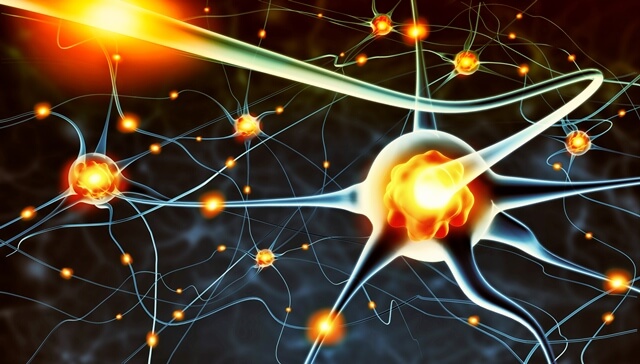Serotonin (5-hydroxytryptamine, 5-HT) is a chemical found in the human body.
Axar.az reports that it carries signals along and between nerves - a neurotransmitter. It is mainly found in the brain, bowels and blood platelets.
Serotonin is thought to be especially active in constricting smooth muscles, transmitting impulses between nerve cells, regulating cyclic body processes and contributing to wellbeing and happiness.1
Serotonin is regarded by some researchers as a chemical that is responsible for maintaining mood balance, and that a deficit of serotonin leads to depression.
The word serotonin comes from its discovery when it was isolated in 1948 by Maurice M. Rapport and initially classified as a serum agent that affected vascular tone.
What is serotonin?
Serotonin is created by a biochemical conversion process which combines tryptophan, a component of proteins, with tryptophan hydroxylase, a chemical reactor. Together, they form 5-hydroxyltryptamine (5-HT), also referred to as serotonin.
Serotonin is most commonly believed to be a neurotransmitter, although some consider the chemical to be a hormone.
Where does serotonin come from?
Serotonin is manufactured in the brain and the intestines. The majority of the body's serotonin, between 80-90%, can be found in the gastrointestinal (GI) tract. It can also be found in the blood platelets and the central nervous system (CNS).
As serotonin can be found widely across the body, it is believed that the chemical plays a role in influencing a variety of body and psychological functions.
Serotonin cannot cross the blood-brain barrier, therefore, serotonin that is used inside the brain must be produced within it.
What does serotonin do?
As a neurotransmitter, serotonin relays signals between nerve cells (neurons), regulating their intensity.
Serotonin is a neurotransmitter, regulating signals between neurons.
Serotonin is widely believed to play a key role in the central nervous system, as well as in the general functioning of the body and in particular the GI tract. Studies have found links between serotonin and bone metabolism, breast milk production, liver regeneration and cell division.























































